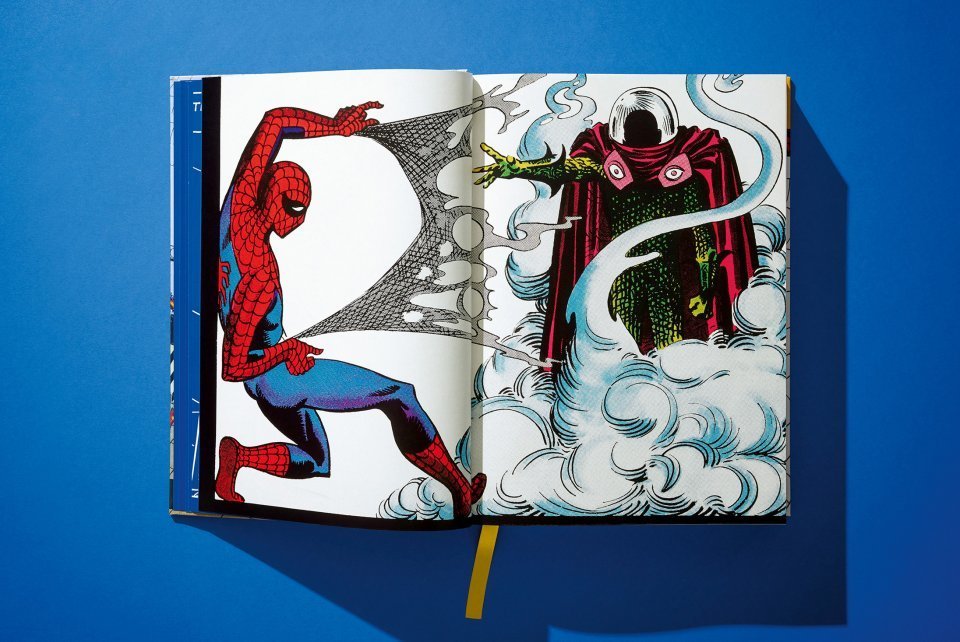Taschen Publishes the First 21 Stories of Spider Man in a High Resolution, Extra-Large Format Art Book

Marvel Comics and art book publisher TASCHEN have announced an agreement to publish Marvel’s rarest classic comics “in their original glory, in an extra-large format.” And it all starts with Spider Man. The first volume in the Marvel-TASCHEN series reproduces the first 21 stories of Spider Man, originally published between 1962-1964. TASCHEN has attempted to “create an ideal representation of these books as they were produced at the time of publication.” The editions feature super-high-resolution photographs of each page, “using modern retouching techniques to correct problems with the era’s inexpensive, imperfect printing.”
You can explore the new Spider Man editions here. The next titles in ‘The Marvel Comics Library’ series will be Avengers. Vol. 1. 1963–1965, Fantastic Four. Vol. 1. 1961–1963 and Captain America. They’re scheduled for release in 2022 and 2023. Keep an eye out…
Would you like to support the mission of Open Culture? Please consider making a donation to our site. It’s hard to rely 100% on ads, and your contributions will help us continue providing the best free cultural and educational materials to learners everywhere.
Also consider following Open Culture on Facebook and Twitter and sharing intelligent media with your friends. Or sign up for our daily email and get a daily dose of Open Culture in your inbox.
Related Content:
Every Spider-Man Movie and TV Show Explained By Kevin Smith
Hear an Hour of the Jazzy Background Music from the Original 1967 Spider-Man Cartoon
The Mathematics of Spiderman and the Physics of Superheroes
Free: Download 15,000+ Free Golden Age Comics from the Digital Comic Museum
How to Make Comics: A Four-Part Series from the Museum of Modern Art
Taschen Publishes the First 21 Stories of Spider Man in a High Resolution, Extra-Large Format Art Book is a post from: Open Culture. Follow us on Facebook and Twitter, or get our Daily Email. And don't miss our big collections of Free Online Courses, Free Online Movies, Free eBooks, Free Audio Books, Free Foreign Language Lessons, and MOOCs.
from Open Culture https://ift.tt/3dzBdiv
via Ilumina
Comments
Post a Comment